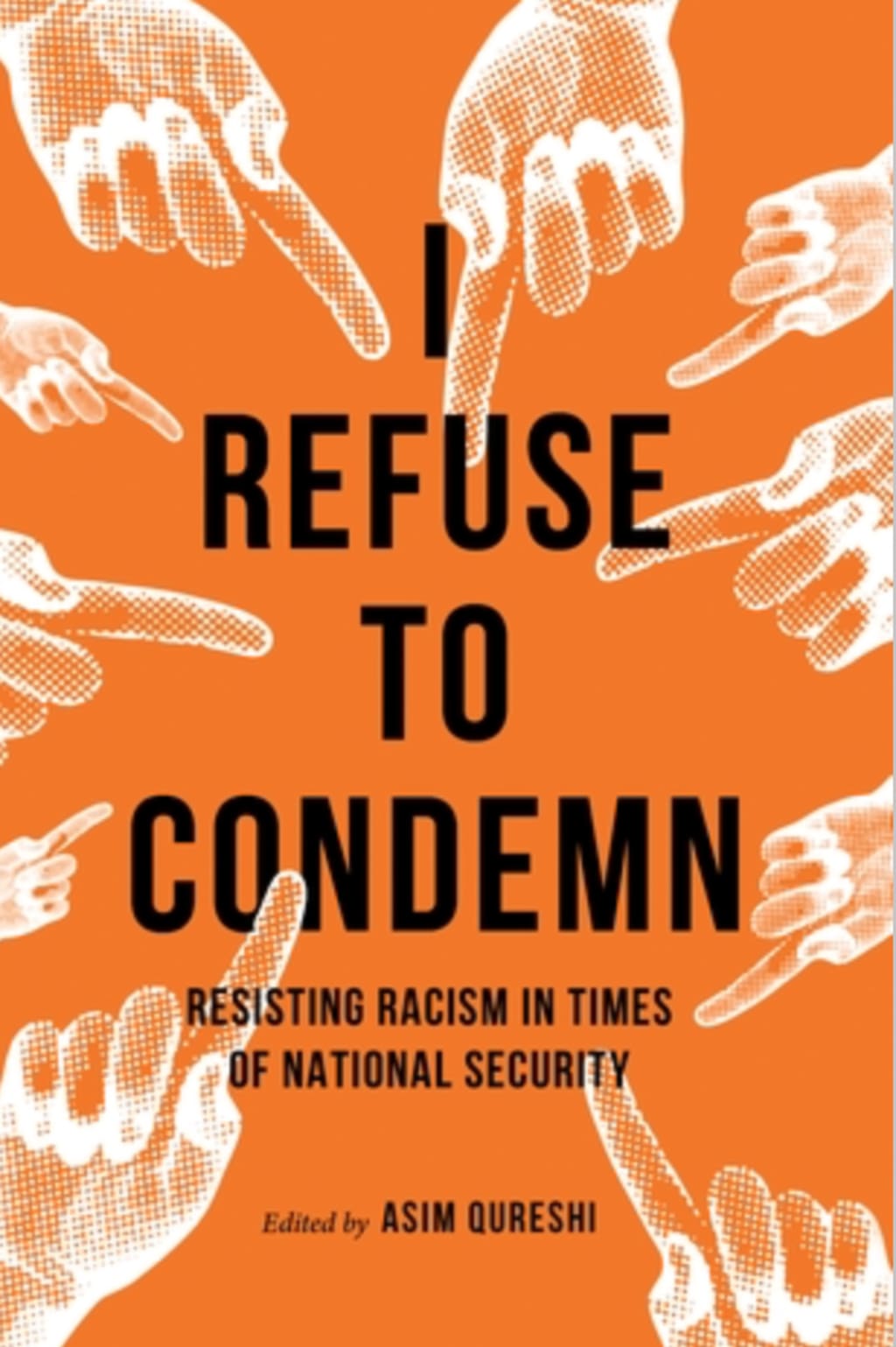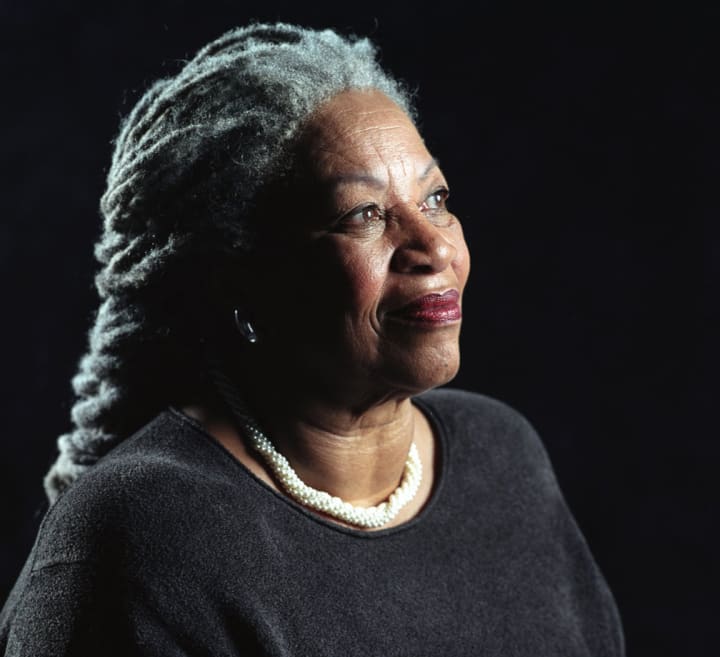The politics of refusal
How Muslims refuse to be criminalized by the war on terror

In the opening chapter of I Refuse to Condemn: Resisting Racism in Times of National Security, edited by Asim Qureshi, contributor Shenaz Bungalwala documents the contradictory expectations that British Muslims have navigated since the onset of the US-led "war on terror" in 2001.
Drawing on a study commissioned by a charity she used to work for, Bungalwala reports that the majority (54 percent) of British society believe that British Muslims have a special responsibility to condemn acts of Islamist terrorism, simply due to their being Muslim.
Still, when British Muslims produce the expected condemnations, the overall percentage of the focus group with a positive perception of Muslims increases by less than 0.5 percent (from 4.96 percent to 5.32 percent). The rewards of compliance are not, it seems, as great as those who advocate it might have hoped for.
I Refuse to Condemn documents the strategies that its contributors have devised for refusing the racist demand so often heard in the public sphere that Muslims repeatedly condemn the terrorist acts with which they are associated by the white racist imagination.
Comprised of 17 accounts of the personal and sociological consequences of racialised Islamophobia in the UK and the US, I Refuse to Condemn compellingly conveys the experience of British and North American Muslims, who, since the beginning of the war on terror, perpetually negotiate and gradually learn to resist mainstream society's hostile gaze.
In this book, lawyers, computer programmers, teachers, academics, fashion designers, rappers, comedians and poets show how the call to condemn terrorist acts of violence functions as a bludgeon, quelling innocent Muslims into silence.
While they attest to how, across the political spectrum, conservatives and liberals share in common the expectation that Muslims should not be permitted to dictate the conditions of their own existence on their own terms, these contributions even more importantly outline the means they have devised for resisting this hostile demand.
Spheres of public life
The book covers many different spheres of public life: academia, charities and NGO work, law, the literary world and pop culture.
While many different kinds of racism are documented in these pages, three in particular stand out across the different chapters: "public safety racism", which encompasses the many manifestations of the UK government's strategies for surveilling and policing Muslims; algorithmic racism, covering the ways in which Muslims and people of colour are coded as terrorists by computer algorithms; and performative racism, in which outspoken and visible Muslims who are taken to represent the wider Muslim community are asked to "perform" their condemnation of terrorism, for the benefit of outside observers.
Civilians are co-opted into public safety racism, and all spheres of public life, from the health clinic to the university, are made hazardous for Muslims. While public safety and algorithmic racism are related in obvious ways through the state apparatus, they are manifested in different ways. Public safety racism is strategically positioned by the state as a feature of everyday life, which is needed for the prevention of terrorism.
Since the UK's Prevent legislation is the best-known and most consequential instance of "public safety racism", it is unsurprisingly the focus of several contributions to this volume, including those by Shereen Fernandez, Azeezat Johnson and solicitor Saffa Mir. Fahad Ansari's account of the double standards that shape the implementation of terrorism legislation is also an indictment of public safety racism.
'Automatic excommunication'
Algorithmic racism, by contrast with public safety racism, is often concealed from public view. It manifests itself as an impersonal calculus that operates according to the pretence of neutrality, even while it, too, involves individuals: security guards at border crossings, computer programmers who create the algorithms, and everyone tasked with implementing them.
The operations of algorithmic racism are brought into vivid relief in Shafiuddean Choudry's analysis of his detention at an airport. Algorithmic racism is implicit in many other border crossings recorded in this book, such as Tarek Younis's account of being stopped at the Canadian border, a situation he was only able to extricate himself from once he produced a letter of recommendation from the Canadian police force.
Performative racism serves the function of naturalising this system and giving it ideological legitimacy, as Muslims are asked to internalise the racist gaze that is projected onto them.
This type of racism is the focus of the final section, in which Suhaiymah Manzoor-Khan, rapper Lowkey, fashion blogger Hoda Katebi and comedian Aamer Rahman reflect on how their efforts to speak in their own voice have been met with opposition from a largely white audience unwilling to listen to Muslim voices on their own terms.
Each type of racism contributes to what Qureshi describes as the British Muslim subject's "automatic excommunication from normality", which also dehumanises the subject from whom condemnation is expected as the price of admission into mainstream British society.
This is a price that the contributors to I Refuse to Condemn rightly refuse to pay.
Community effort
What all three racisms - public safety, algorithmic and performative - share in common is that they operate regardless of whether the perpetrators are consciously racist. Much of the racism documented in this volume is systemic: it operates independently of individual intention. Yet, this does not mean that the individuals participating in it, whether as perpetrators or targets, are not directly implicated.
I Refuse to Condemn is not only about how racism is manifested in British and North American life; it is also about how it is resisted. The impact is at once personal and societal, as this volume effectively shows through its combination of memoir-style writing and sociological analysis.
As the data in Bungalwala's opening chapter shows, unconscious and semi-conscious racist Islamophobia is etched onto the western psyche, and condemnation is futile because the suspicion of guilt precedes guilt by association.
One theme that recurs across all chapters is that this resistance is a community effort, not an act performed in isolation. The more people engage it, the more effective resistance becomes. This is why so many of the chapters dwell on the role of parents and other role models - such as Ansari's father and Younis's mother, both of whom died tragically during the authors' childhoods - in shaping their sense of what can be done to resist the racist gaze of mainstream society.
Other contributors focus on children: nieces and nephews (such as Nadya Ali's essay), and friends. The keynote of all this collective thinking is that learning to refuse to condemn and to affirm instead one's own dignity is an intergenerational process. The more the demand to condemn is rejected, the more those who are targeted will be able to undermine the racist terms of this demand.
The purpose of resistance
In her memorable account of the strategies she has developed to respond to the pressure she repeatedly faces to conform to a pre-existing stereotype about Muslim women every time she is asked to recite poetry by the BBC and other news media, Manzoor-Khan invokes Toni Morrison's reminder about racism. "The very serious function of racism," Morrison says,
is distraction. It keeps you from doing your work. It keeps you explaining, over and over again, your reason for being." Yet, Morrison points out, giving in to the demand to explain - to justify one's very existence in front of the racist gaze - is futile: "None of this is necessary. There will always be one more thing.

If the point of racism is to distract, then the purpose of resistance is to persist. As the essays in this volume show, the best response to systemic racism is what Qureshi calls a "praxis of resistance". I Refuse to Condemn is a major step towards developing this resistant praxis as a collective act.
To invoke another African American thinker who figures into this collection, James Baldwin, the bold and brave writers who contributed to this volume refuse to accept that the price of the ticket that western society offers Muslims to gain admission must involve the violation of their dignity.
This volume bears witness to the fact that a new generation of British and American-born Muslims are entering this world, which is their birthright, on their own terms. They are also remaking their birthright into a world that will someday be open to everyone.
Further Reading
Asim Qureishi, ed. I Refuse to Condemn: Resisting Racism in Times of National Security, ed. Asim Qureishi (Manchester University Press, 2020).
Malcolm X and Alex Haley, The Autobiography of Malcolm X (Ballantine Books, 1965).
Safiya Noble, Algorithms of Oppression: How Search Engines Reinforce Racism (NYU Press, 2018).
Thanks for reading! You may also be interested in this article, in which I write about the war on terror in Chechnya.
About the Creator
Rebecca Ruth Gould
I am author of the award-winning book Writers and Rebels: The Literature of Insurgency in the Caucasus (Yale University Press, 2016). My Wikipedia page.
Subscribe to my YouTube Channel Poetry & Protest. ⬆️






Comments
There are no comments for this story
Be the first to respond and start the conversation.